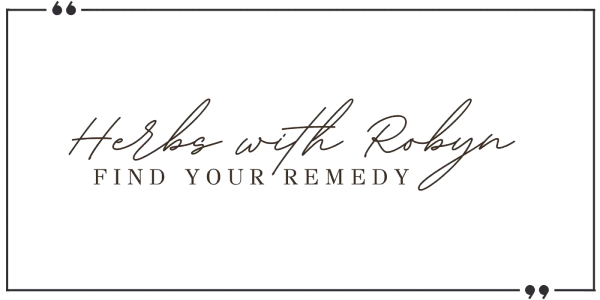How A Tongue Assessment Will Help You Find Balance. Your body is always communicating with you—through how you feel, what you crave, and how you respond to stress. But did you know your tongue is also a powerful tool for understanding the state of your health? In traditional Chinese medicine and many other holistic healing systems, the tongue serves as a map of the body, reflecting both physical and emotional imbalances. By assessing the tongue’s color, shape, size, markings, and texture, we can identify patterns that reveal underlying issues within your organ systems and emotions—and then recommend specific herbs to support your overall wellbeing.
Let’s explore how this fascinating practice works and how a tongue assessment can help you find the balance you seek
The Root Cause: How “Your Issues Become Your Tissues”
The wisdom behind a tongue assessment goes beyond just addressing symptoms—it helps get to the root cause of the problem. Whether your imbalances are rooted in physical stress, emotional turmoil, or lifestyle factors, the tongue doesn’t lie. By carefully assessing it, we can uncover hidden issues and provide a holistic path to healing.
The saying “your issues become your tissues” beautifully illustrates how emotional stressors, if left unresolved, can manifest as physical ailments. A tongue assessment helps connect the dots between your emotions and your organs, offering you a deeper understanding of what’s truly going on inside your body.
The Transformation Process: Seeing Results Over Time
One of the most exciting aspects of working with 1-on-1 clients is witnessing the tongue’s transformation over time. As we do the specific deep, inner work of healing with herbal remedies, the tongue responds and begins to change. Three months into our work together, it’s often possible to see clear signs of improvement—whether it’s a reduction in inflammation, changes in dampness, dryness, less ridges and marks, and/or a healthier color. By the six-month mark, the transformation is even more dramatic, reflecting the progress we’ve made in restoring balance to the body and emotions. What I love about this process is it doesn’t take too many protocols, remedies. I will try my best to get root cause healing, with as little remedies and follow-ups as possible.
These visible changes in the tongue are a true testament that we are addressing the root cause and doing meaningful work. The tongue serves as a mirror, showing that the herbs, lifestyle shifts, and emotional healing practices we’ve implemented are truly making an impact. It’s a deeply rewarding process to not only feel the difference but also see it reflected in something as tangible as your tongue.
Once we’ve identified the imbalances, we can recommend specific herbs tailored to the needs of your organs—whether it’s nourishing your blood, calming the liver, or strengthening the kidneys. This approach is why we often see such visible results over time.
What Can Your Tongue Reveal About Your Health?
Your tongue is a direct reflection of the health of your internal organs. In fact, it’s often called the “microcosm of the body.” By looking at various characteristics of the tongue, we can gather clues about how well different organ systems are functioning and where emotional energy may be stuck or blocked.
Here’s a breakdown of what the various aspects of your tongue can tell us:
1. Tongue Color:
- The color of the tongue may indicate deficiency, particularly of energy, blood, which often manifests as fatigue, cold extremities, and general weakness. Emotionally, this may be linked to feelings of depression or lethargy.
- The color of the tongue can often suggests heat or inflammation in the body. This can be connected to irritability, stress, or even digestive issues like acid reflux. The emotional counterpart may involve anger or frustration.
- The hue of the tongue in specific areas suggests stagnation in that organ system or area of the body where the blood or energy isn’t flowing properly. This could be linked to conditions like poor circulation or muscle tension, and emotionally, it might point to feelings of being stuck, trapped, or overwhelmed by unresolved issues.
2. Tongue Shape & Size:
- The size and shape of the tongue can indicate an imbalance in fluid metabolism, often linked to the spleen, digestive system or lymphatics. This may correspond to emotional issues like overthinking or worry.
- A thin tongue often signals a deficiency in fluids, blood, or energy, which may suggest emotional exhaustion,sadness, or chronic stress.
3. Coating of the Tongue:
- A thick coating, may indicate dampness, candida or phlegm in the body, often tied to digestive issues or respiratory congestion.
4. Markings and Spots:
- Depending on which area of the tongue the marks, crack or spots are on we correlate it with the organ system it is on. Emotionally, cracks may reflect deep-seated stress or worry that hasn’t been addressed for a long time.
- Specific spots and coloring may suggest heat or stagnation, respectively. If these spots appear in specific areas, they may also point to the organ system affected (e.g., lungs, liver, kidneys). Emotionally, this may indicate blocked anger, grief, or frustration.
5. Mapping the Tongue to Specific Organ Systems
- Different areas of the tongue correspond to different organ systems. This map is key in understanding which organ is out of balance:
- There are locations on the tongue that Represents the heart, lungs and mind. Redness or sores here may indicate heart issues or emotional turbulence like anxiety or excessive excitement.
- The sides of the tongue can be linked to the liver, kidney, breasts and gallbladder. Teeth marks or redness along the sides could reflect liver imbalances, often associated with stress, frustration, or anger.
- In the middle of the tongue we have the stomach, spine, and spleen a swollen or cracked center may suggest digestive issues, and emotionally, it may indicate worry or overthinking. Sometimes when reading the tongue you can even see the spine and if a specific accident has occurred like whiplash.
- The back of the tongue is tied to the kidneys, bladder, and lower intestines. A pale or swollen back may point to water retention, hormonal imbalances, or emotional fear and insecurity. Deep furrows or cuts can often indicate a deeper issue.
Emotional Imbalances and Organ Health
In traditional healing philosophies, emotions are intricately connected to the health of your organs. When emotions are not properly expressed or released, they can become trapped in the body, manifesting as physical symptoms over time. For example:
- Liver: Anger, frustration, and resentment are stored in the liver. When these emotions build up, they can lead to liver stagnation, which may show up on the sides of the tongue.
- Lungs: Grief and sadness are often housed in the lungs, leading to breathing issues or coughs. If the tip of the tongue (representing the lungs) appears red or swollen, it may indicate unresolved grief.
- Kidneys: Fear and insecurity can weaken the kidneys, leading to symptoms like fatigue or lower back pain. The back of the tongue, representing the kidneys, may appear swollen or pale in these cases
Conclusion
A Tongue assessment is a fascinating, non-invasive way to get an intimate look at your health. It serves as a guide, not just for understanding the physical state of your organ systems, but also for uncovering emotional imbalances that may be contributing to your overall wellbeing. By working with herbs to balance the body and emotions, you can unlock a new level of health and vitality—allowing you to live a life that’s in harmony with both your body and mind.
The next time you feel off-balance, remember: your tongue has the answers.
For a complete Tongue assessment and herbal protocol book a session with me here!






